berater.de interview with Nils Boeffel: digitalization and agile transformation
Nils Boeffel provides insights into the application of agile methods to cope with a high degree of complexity in companies and the market environment and to develop a sustainable transformation process.
Tell us a few key facts about yourself and your professional focus?
I’m Nils Boeffel, and I’ve been helping companies successfully plan and implement their digital strategy, agile transformation and other large-scale projects for about 20 years. My technical background in test electronics combined with an MBA provide me with a great understanding of both technology and business challenges, and allows me to effectively operate at the intersection of both.
Why did you decide to become a freelance consultant? Why do you use berater.de?
As a consultant, I am attracted to finding solutions to complex problems, working on diverse issues, and helping develop interesting people and organizations. As a freelancer, I am independent and can define the right path together with the client and implement it in a practical way. berater.de is a suitable platform for this, which offers many interesting project opportunities in terms of its reach and scope.
Why did you decide to specialize in the area of digitalization and agile transformation?
I want things to work, so my motto is “Making Transformation Succeed.” Digitalization is necessary to keep up with market developments, and an agile organization can react faster to changes. I was most interested in the two topics of digital strategy and agile transformation, because they provide an essential basis for meeting the challenges of an increasingly fast-changing world.
In your view, what are the 3 biggest challenges in this area?
- Meeting the constant change
- Linking customer needs more closely to business objectives
- Focus on the most necessary core competencies of the company
Why exactly do you find these challenges most relevant?
- Change is the only constant in life. You can only be economically successful in the future if your company is agile and ready to change in this respect. Digitization plays an important role here, as it can create transparency and accelerate processes.
- The customer is always asking for more. Customers have increasingly high expectations of companies. They no longer expect products, but solutions to their problems. The customer wants to not just be perceived as an anonymous customer, but increasingly as an individual, with personalized / customized products, a more personalized approach, etc. The customer can become the best brand ambassador (via influencers) for companies that recognize and implement this.
- Every company is part of a global network. The days when companies could produce and offer everything from a single source are over. An increased focus on core competencies is an essential prerequisite for being successful and making sure that time and energy is invested in the most essential and important issues.
What is the importance of transformation projects in today’s companies, especially in view of the current market situation during Corona?
Situations like the current pandemic show how important it is for every company to be able to react quickly and flexibly to a changing environment. A healthy transformation culture is helpful, but activity for activity’s sake is a risk. Crises like these always offer the opportunity to find new ways to develop the company further. Those who have the courage for the necessary transformation will emerge stronger from the crisis.
The topic of agile is always brought up in connection with transformation. What role does the use of agile working methods play in the transformation process?
Agile methods are particularly useful when complexity in the company and market environment increases. Complex issues contain a great deal of dynamics, and interrelationships between processes, topics and company divisions are confusing. Agile methods are suitable for breaking down complex problems into small concrete steps, the results of which each have a concrete benefit for customers and the company. This means that it is always possible to ensure that the transformation process is moving in the right direction.
Does agile project management always offer added value for companies? Or does it depend on the company and its processes as well as on the type of agile methods?
Organizations are always in one of two states: A steady state evolution (requiring improvements and minor changes) or larger change (requiring major changes).
If you are in a steady state that you want to incrementally improve, i.e., optimizing vs. revolutionizing something, it makes more sense to look at Lean Six Sigma methodologies. These are used for incremental process improvement and optimization to increase stability, improve efficiency or incrementally increase productivity.
When an organization wants to change drastically, do things differently, or do something completely new, agile methods make a lot of sense. They can help you get from state A to B in the most resource and time efficient way possible. Agile methods can be used on a smaller scale as well as enterprise-wide (e.g. SaFE, LeSS, etc.). Choose the right tool for the job.
What do you rate as the biggest challenge of a transformation or digitalization project?
The biggest challenge is to find the right levers that lead to a significant change. There are always an infinite number of issues to tackle. The most important thing is to develop a clear (market) strategy that targets the current and future challenges. Strategy always means to decide in which topics you will NOT invest any more resources. A clear focus and consistent prioritization are the keys to success.
If you were to divide a transformation into sections, what would they be?
- Drivers: Recognize that a change is needed in the company and what external reasons are responsible for it.
- Strategic Focus: Understand how the market situation affects the company’s strategy and core competencies.
- Transformation: Plan which changes are necessary and need to be implemented.
- Culture: Ensure that change is established as part of the corporate culture.
Are there any industries where transformation is easier to execute and if so, why?
A flexible mindset in the organization is a good prerequisite for transformation regardless of the industry. Industries that are close to technology generally find it easier, as do younger companies or companies that have already gone through several transformations. Older companies that have long operated a stable business model without major change are often anchored in fixed structures. However, if leadership levels have recognized that change is necessary and are willing to drive and personally support it, change is possible in any company.
On average, how long do your transformation projects take and what factors influence the duration?
Here we are talking about months to years. Processes or organizational areas can be transformed in a few months, but fundamental cultural change, which demands and drives change on its own, tends to take longer. Top management support has a big impact on duration and success.
In your opinion, what are the 3 consulting competencies that will enjoy the highest demand in transformation and digitization projects in the coming years?
- Mastering and reducing complexity Companies and their environment are becoming increasingly complex. Only those who manage to recognize the essential aspects, identify drivers, and simplify topics can offer viable solutions.
- Prioritized pragmatism. There is always too much to do. The goal is to identify and focus on the most important issues, and solve them as much as possible with the least effort – “perfect” is the enemy of “good enough” in this case.
- Listening and communication, at all levels of the organization. The consultant will never understand the organization as well as its executives, and will never be able to identify problems in the implementation of projects as well as the employees affected by them. Major transformations and cultural change in the company affect EVERYONE. Everyone who is not sufficiently informed will otherwise go their own way, which will hinder change.

